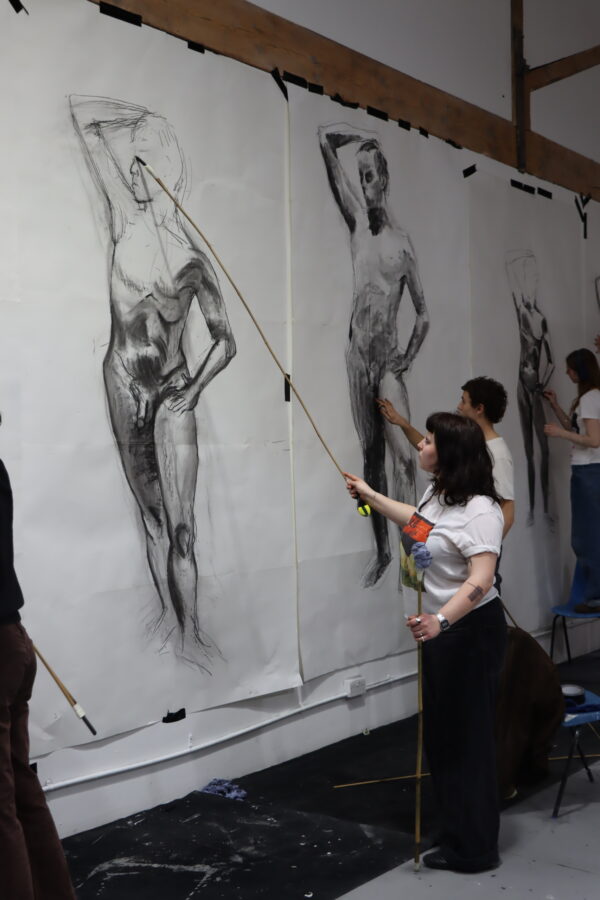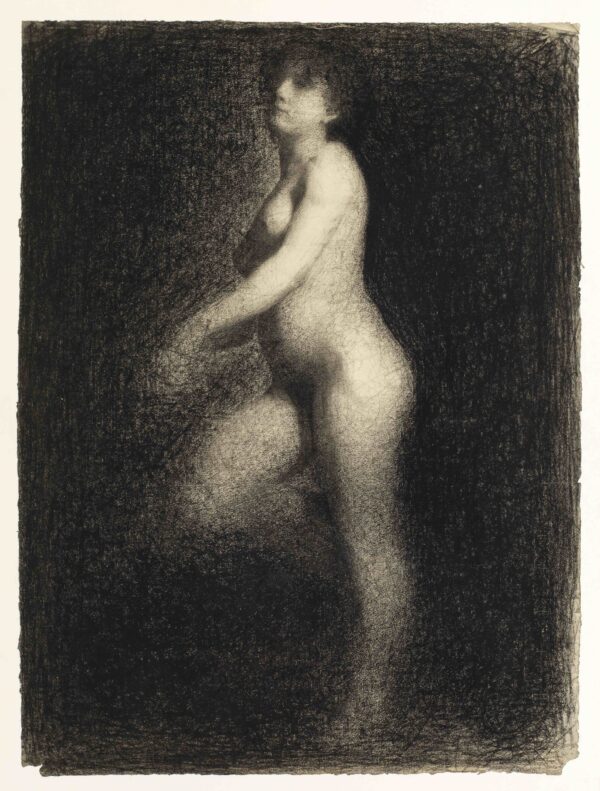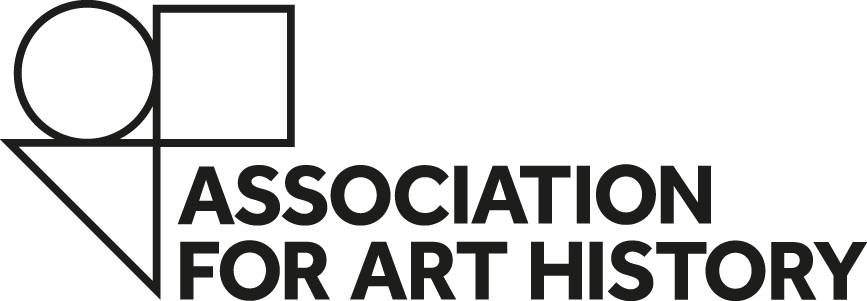From the sixteenth century to the present, drawing the human body from life has remained a mainstay of Western institutional art practice. Despite significant shifts in the aesthetics, media, and purpose of art over the last five hundred years, life drawing endures in both the studio and the classroom.
Pose, Power, Practice is a one-day symposium that seeks to reassess the state of the field on life drawing and apply new critical frameworks to this sustained practice. It aims to better understand life drawing in all its complexity, from its presumed advantages to its consequences. This is a practice deeply intertwined with concerns central to the discipline of art history, including but not limited to: the power dynamics of the gaze; the politics of representation; recognition of multiple forms of artistic labour; formulations of race, dis/ability, gender, and sexuality; and critiques of institutions. How has life drawing changed across time and place? How and why has it endured as a pedagogical practice, despite repeated dismissals of its “academicism”? What uses does it hold today, for artists and art historians alike?
Our re-evaluation of life drawing will start with two virtual panels earlier in the week, hosted in collaboration with The Drawing Foundation. At ‘Life Drawing After Death’ on Monday 17 June, 16:00 BST and ‘Life Model as Laborer and Artist’ on Tuesday 18 June, 13:00 BST, we will dive into topics that will resonate with and inform our in-person discussions on the varied perspectives, ethical considerations, and diverse practices that make up life drawing. Visit The Drawing Foundation’s event webpage for further details.
Organised by Dr Zoë Dostal (Kress Fellow, The Courtauld) and Isabel Bird (PhD candidate, Harvard University).
Speakers
Antje Southern (The King’s Foundation Diploma Year) studied Art History at UCL and the Warburg Institute and taught visual analysis and connoisseurship from the Renaissance to Contemporary Fine and Applied Arts at Christie’s Education. Since 2013 she has been collaborating with practitioners at the Royal Drawing School using drawing as an approach to engage with historical art practises. She is senior tutor at the King’s Foundation Diploma year and has implemented a contextual studies curriculum that integrates workshop teaching with art historical studies through observational drawing in museums and galleries.
Fra Beecher (United Models Life Drawing) is a life model and photographic artist. In 2009 Fra received a BA in Photographic Art from the University of Wales, Newport and completed a Masters in Photography at the University of the West of England in 2020. Her photographic practice is informed by her work as a life model. Through her work she challenges the misconception that life models are passive muses. Her project ‘Body of Work’ explores the physical role of the female life model.
John Fagg (University of Birmingham) is a Senior Lecturer at the University of Birmingham. He is the author of Re-envisioning the Everyday: American Genre Scenes, 1905-1945 (2023) and On the Cusp: Stephen Crane, George Bellows and Modernism (2009) as well as articles, catalogue essays and book chapters on American art and literature. These include the prize-winning “Chamber Pots and Gibson Girls: Clutter and Matter in John Sloan’s Graphic Art” and the recent “Working and Waiting: Ben Shahn’s Pictures of and after Labor.” John curated Bellows and the Body (2016) and New York City Life: John Sloan’s Prints (2018) at the Barber Institute of Fine Arts.
Nick Robbins (UCL) is Lecturer in British Art, 1700-1900, at University College London. His research focuses on the intersecting trajectories of art, science, and environment in the modern Atlantic world. He is currently at work on a book, The Late Weather: Art and Climate in Nineteenth-Century Britain, as well as collaborative projects about Victorian botany; environmental determinism and form; and the graphic intelligence of art history.
Oriane Poret (Université Lyon 2, LARHRA) is a PhD student in History of Art at the Université Lyon 2 under the supervision of Prof. Laurent Baridon. Her dissertation focuses on the role and place of animals in Rosa Bonheur’s life and work, with particular reference to the status of animals as models. As part of her thesis, she is looking at European artists with similar attitudes to animals, particularly in England and Germany. A recent speaker at various symposia on 19th-century animal painters, she has also written for exhibition catalogs at the Musée d’Orsay and the Barnes Foundation.
Suri Li (University of Cambridge) is a third-year History of Art PhD candidate at the University of Cambridge. She obtained her first-class honours degree in History of Art from the University of Edinburgh before entering the MPhil in History of Art programme at the University of Cambridge. Her doctoral research investigates the artistic and social networks between various Dominican female religious houses across Italy between the fourteenth and the sixteenth centuries. Fieldworks and archival research in Italy are essential to her current research. She received a three-month fellowship from NIKI Florence and has conducted archival research in Florence, Prato, Lucca, Genoa and Turin.
Susanne Müller-Bechtel (Saxon Academy of Sciences and Humanities in Leipzig – Young Forum) is a freelance lecturer in art history at the Julius-Maximilians-Universität Würzburg in the interdisciplinary degree programme “Collections – Provenance – Cultural Heritage” and at the Westsächsische Hochschule Zwickau. Her research on drawing as a tool and artistic practice has appeared in several publications including Von allen Seiten anders. Die akademische Aktstudie 1650-1850 (Berlin 2018) and the article “Academic Life Drawing in Rome in the Second Half of the Eighteenth Century: Shaping a Common Language” (Turnhout 2021). Susanne has previously taught at the University of Bonn and the University of Würzburg.
Tomáš Valeš (Institute of Art History, Czech Academy of Sciences, Prague & Department of Art History, Masaryk University, Brno) studied art history at the Faculty of Arts, Masaryk University in Brno (Ph.D. 2013). Since 2008, he has been employed with the Institute of Art History, Czech Academy of Sciences. As a researcher, he focuses on the early modern art and the visual culture. Since 2017, he has been an Assistant Professor at the Department of Art History, Masaryk University in Brno, and in the summer of 2023, he was a Visiting Senior Fellow at CASVA, National Gallery of Art, Washington, D.C.
Yanyun Chen (School of the Museum of Fine Arts, Tufts University) is an artist, researcher and a Professor of the Practice at SMFA, Tufts University. Her practice untangles tenuous relationships with traditions, delving into aesthetic, cultural, and technological inheritances on one’s body, unravelling fictional and philosophical notions of embodiment, heritage and legacies. She received the Singapore National Arts Council Young Artist Award (2020) and Singapore Art Museum President’s Young Talents People’s Choice Award (2018). Chen graduated from European Graduate School PhD and MA program (2018, 2014), and Nanyang Technological University BFA program (2009). She authored “Collecting Bodies : A short story about art and nudities in Asia” (2022).
Organisers and Moderators
Carole Nataf is a PhD Candidate and an Associate Lecturer at the Courtauld Institute of Art. Her thesis focuses on intersections between the arts of early modern France and the natural sciences in a global and colonial context. Her paper ‘Rococo epistemology: Shell grottos and the aesthetics of deep time in Georges-Louis Leclerc, Comte de Buffon’s theory of the earth’ at HECAA@30 has received the 2024 Dora Wiebenson prize. She is also at work on collaborative projects such as the ‘Transatlantic pigment project’ at the CVMS at Penn State University and publications such as ‘Visualising gum arabic: From the West-African Sahel to Parisian art studios’. Her research has been supported by the Courtauld Scholarship, the Paul Mellon Center for British Art and the Clark/UCLA center for seventeenth and eighteenth-century studies and was presented at the Huntington Library amongst other places.
Isabel Bird is a PhD Candidate in the History of Art and Architecture at Harvard University, with a secondary field in Art, Film, and Visual Studies. She is currently completing a dissertation on the relationship between drawing and learning in the twentieth century, with a focus on the work of Ruth Asawa, Adrian Piper, Sylvia Plimack Mangold and Sturtevant. She has an active daily drawing practice of her own and attends weekly figure drawing sessions at Life Drawing Boston.
Joanna Woodall. As Professor Emeritus at the Courtauld, Joanna Woodall is privileged to be able to do the things she enjoys. Those most relevant to this context are research in early modern northern European art, learning to paint in oils and a weekly life drawing class. The latter takes place at the venerable Hesketh Hubbard Art Society, established in 1930 by a committee of the Royal Society of British Artists to address the shortage of life-drawing opportunities at that time.
Tara Versey, Royal Drawing School. Tara was born in London where she continues to live and pursue her work. Drawing forms the basis of this work, finding its way into painting, printmaking and sculpture. She studied fine art at Camberwell, London Metropolitan and the Royal Drawing School. Tara is interested in the physical and emotional flux of human experience. Through her work she seeks to connect with these aspects, through formal interactions, contrasts, rhythms and relationships. Teaching drawing and printmaking part-time at the Royal Drawing School and working with art foundation students, enables her to actively share and encourage this endeavor with enthusiasm.
Zoë Dostal (PhD, Columbia University) is the 2022–2024 Kress Fellow at The Courtauld Institute of Art and will be the 2024–2027 Visiting Assistant Professor of Early Modern European Art and Architecture at Amherst College. Her current book project investigates the material and ideological enmeshment of textile manufacturing, imperialism, and the visual arts in eighteenth-century Britain. Her work has been supported by fellowships at the Huntington Library, the Paul Mellon Centre for Studies in British Art, the Winterthur Museum, Garden & Library, and the Yale Center for British Art.










